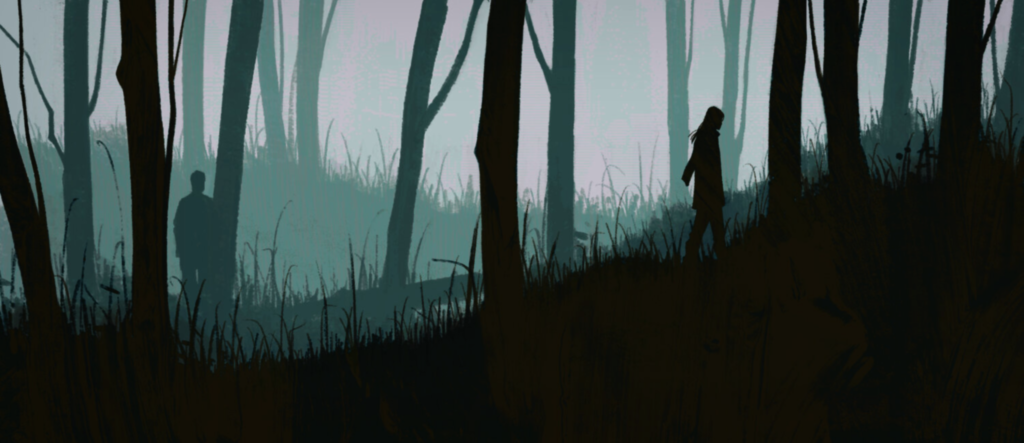I’ve been catching up with The Crimson Petal and the White and it’s an encouraging reminder of BBC2’s much better days, though I’m uneasy at the BBC’s current operating assumption that the only acceptable historical drama involves shagging or lesbians. Don’t get me wrong, I’ll happily watch either, but the feeling’s like that of reading the newsletter of some kinky middle-class society of which I’m not a member.
The camerawork’s fashionable, which is never good, but the production design is terrific and the performances spot-on. In tone, and in Mark Gatiss’ side-plot of sexual self-loathing, I’m reminded of David Turner’s 1970 adaptation of Sartre’s Roads to Freedom trilogy. The script is cinematically paced and encourages inference in place of exposition; Lucinda Coxon, Crimson Petal‘s adaptor, is a playwright with no prior TV credits.
Does the current season mark a turning point for BBC drama? As Good Dog points out, this one will be the first to show the outcome of the BBC Trust’s stinging 2009 quality review. Or maybe it represents Ben Stephenson’s master plan anyway, and the review merely marshalled him the way that he was going. It’s good to get an adaptation of a literary work that isn’t already crashingly familiar. But with a generation of writers crushed and discouraged by the Holbification of drama, it’s going to be a while before we start hearing original voices in authored TV again.

One response to “‘king Crimson”
Brilliant blog title! I’ve been trying to track down one of the broadsheet reviews for the first episode of The Crimson Petal and the White in which, if I remember it right, the journalist hilariously berated the drama for not having enough sexual content on screen. So far, no luck!
Obviously it’s not to everyone’s taste, and I suppose it must have given the popular press a wonderful opportunity to berate the Beeb for such licentious material while ogling certain screen grabs. To be honest I wasn’t too sure about The Crimson Petal and the White during the opening minutes as the camera followed Sugar past what looked like a complement of carny acts on their tea break, but I’m glad I hung in there and saw it through to the end, not only because it was damned good but because it was something different.
Exiles wavered in places and at times I wondered if it had come together from the proposed sequel to State of Play that we never got to see. But even if it ultimately didn’t really do it for me, again, I still saw it through to the end because it was something different. I think there’s a pattern emerging here.
Then there’s The Shadow Line. Writing in The Times’ Playlist a couple of Saturdays back, Andrew Billen suggested that The Shadow Line, written, produced and directed by Hugo Blick, was a return to the days of “authored television drama” exemplified by Troy Kennedy-Martin’s Edge of Darkness, Potter’s The Singing Detective and Alan Bleasdale’s Boys from the Blackstuff, plus works by Jimmy McGovern, Paul Abbott and of course Stephen Poliakoff.
One thing that perplexed me, even before the off was that it was a seven–part drama. Seven? Where did that number come from? We always had the single drama, the two–parter, three–parter, and four–parter, then it jumped to the traditional six–parter and after that was the 13-episode series. Edge of Darkness, The Singing Detective, Pennies from Heaven, Tinker Tailor Soldier Spy, Smiley’s People, State of Play, Chimera, and even Das Boot all adhered to this.
Although I’m sticking with The Shadow Line I doubt I’ll want to pick up the DVD to watch it again. Two episodes in it still irritates me with the overt theatricality and I wonder if, in a couple weeks time, I’ll be watching it simply to kill an hour before the start of Rubicon on BBC4. Granted each episode has its own pace and rhythm but I’m beginning to think that by the end people may say that it was all right but could have lost an hour.
After the debacle of Outcasts there seemed to be a lot of comments from folk worrying that, Doctor Who aside, the BBC now wouldn’t touch science fiction drama with a barge pole. Are we at a time where one mistake upsets the whole apple cart? If The Shadow Line isn’t as successful as expected will that hold back the emergence of new authored pieces when the barest trickle of current original dramas needs to return to the days when we were deluged by the most marvellous of floods?